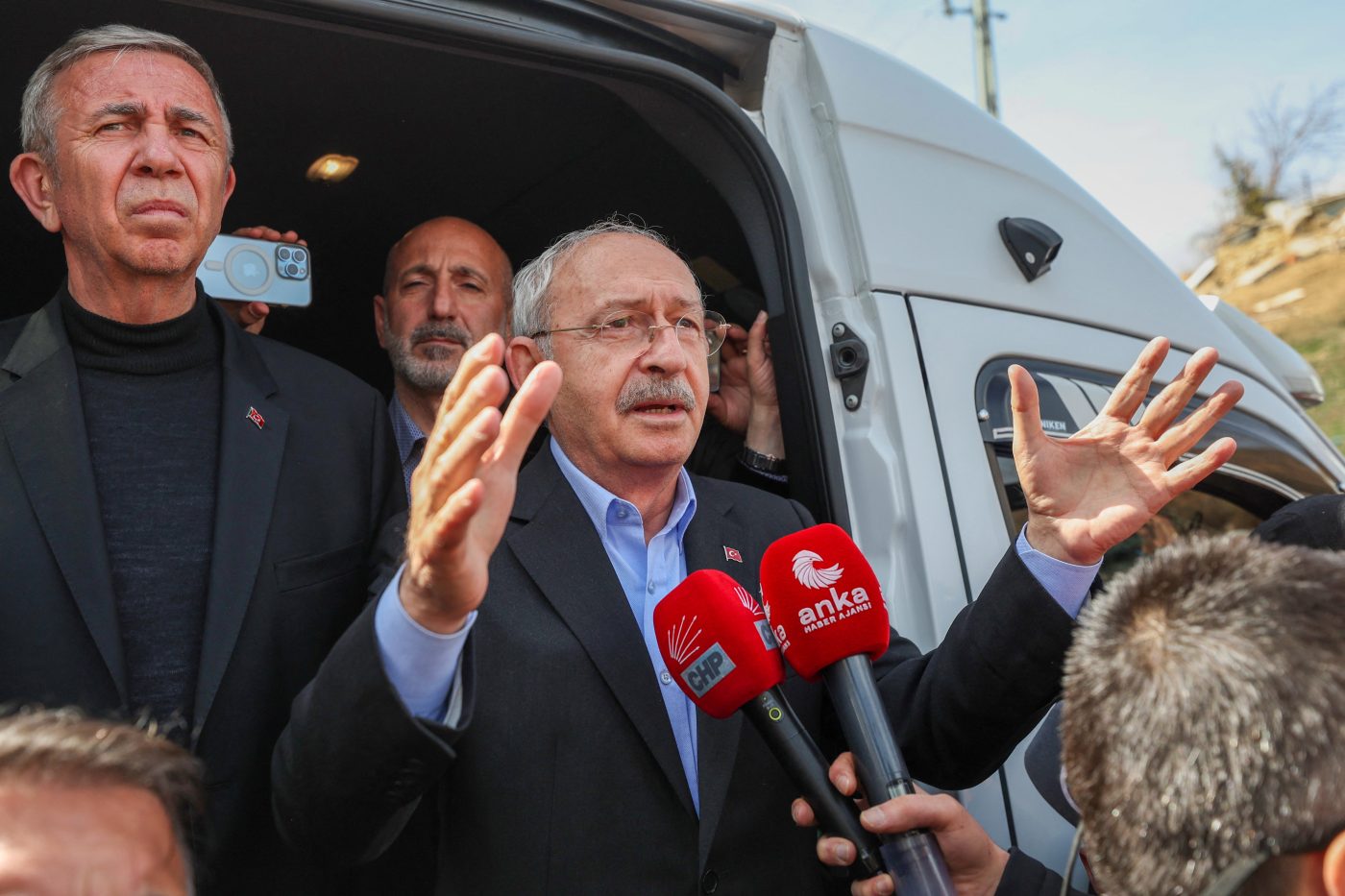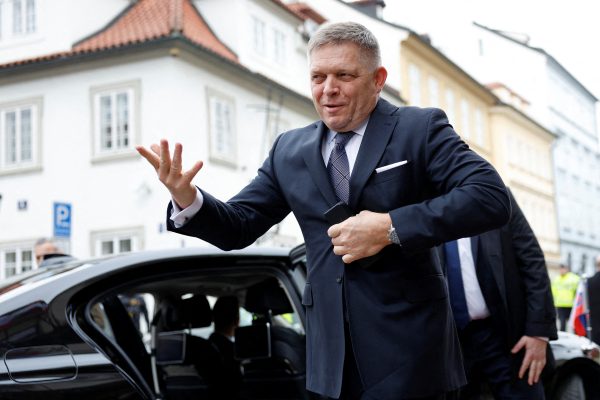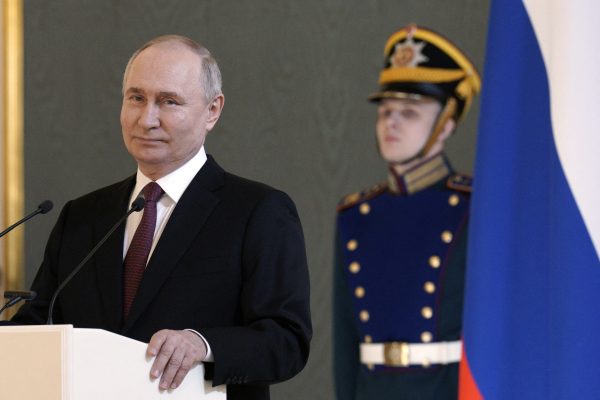Turkey’s political scene is so volatile that it can turn upside down in a matter of days, and sometimes within 24 hours.
That turbulence was on full display on March 3 and in the days immediately following when the previously united Table of Six opposition grouping appeared to fall apart before the wondering eyes of the public. Just 72 hours later, the dispute was patched up, Kemal Kılıçdaroğlu was chosen as the united presidential candidate in May’s election, and a cheering crowd roared its support.
That’s not to say all is well. The dispute erupted when Meral Akşener, leader of the second-biggest opposition group, the IYI Party, said she could not accept Kılıçdaroğlu. Whatever supporters’ feelings about him, and the retired civil servant, nicknamed Gandhi, is not universally admired, the row generated an immense furor and left many in despair about their chances of unseating President Recep Tayyip Erdoğan, and ending 21 years of rule by his AKP party.
Turkish society remains highly polarized. Alongside staunch supporters of the current president, there are those who, for a variety of reasons, are staunchly anti-Erdoğan. Even though the latter constitute almost 60% of the voters, perhaps luckily for Erdoğan, opposition parties have until recently failed to form a unified front. It took until 2019 for Kılıçdaroğlu’s main opposition CHP to hammer together a bloc of six political parties, dubbed the Nation Alliance (or Table of Six.) With four relatively small parties, some of them based on defectors from Erdoğan’s AKP, the IYI Party was CHP’s main partner. IYI itself was founded primarily by an ultra-nationalist party, which had been AKP’s political ally. IYI says it represents secular, more Westernist, and urban Turks, while being a nationalist party occupying the center-right of the Turkish political spectrum.
It was against this backdrop that Akşener’s abrupt decision and its reversal should be seen. Supporters had suddenly been faced with the chilling possibility of division and electoral disaster, embraced the alliance even more strongly, apparently creating an opposition bloc more consolidated and formidable. One can even argue that if the alliance had announced its official candidate before last week’s debacle, it most probably could not have generated this level of euphoria.
The incident has implications for the Turkish people’s previous lessons from hands-on democracy. The current jubilation looks a little like the “Spirit of Gezi” when protests over development plans for an Istanbul park in 2013 brought together a mass movement from all walks of life and with divergent political tendencies.
In the hastily suppressed experiment — thousands were beaten and detained — there was a recognition of the role of leaderless and spontaneous political activism. This time, larger and even more diverse groups have come together to bridge the deepest fault lines in the political environment. This has involved powerfully symbolic steps — such as the CHP leader’s appeal to the more pious among the population; and the pro-Islamist Felicity Party hanging up a gigantic poster of the country’s secularist founding father, Mustafa Kemal Atatürk.
It’s true there have been previous examples of cooperation between political parties, such as in the 1970s. But those alliances were purely tactical arrangements crafted for short-time gains. This time, the pressure is coming from below, involving groups of ordinary supporters demanding that their parties establish coalitions. Party leaders, worried about a possible voter backlash, are giving in. This is as remarkable as it is unusual in a country where people power has often been outweighed by non-democratic forces.
That is not to say that the outcome of May’s votes is even close to certain. There is now some sign that the AKP-MHP camp has been hurt by the opposition’s newfound unity (and perhaps by the catastrophic February earthquakes, which left more than 50,000 dead.) There are enormous economic problems too. On March 11, polls showed Kılıçdaroğlu leading Erdoğan by 55% to 44%, and the opposition alliance also ahead for the parliamentary poll. Earlier polls had indicated the ruling party was holding onto its support. Either way, since support for the pro- and anti-Erdoğan camps appear to be fairly evenly balanced, the role of the Kurdish HDP will be important.
Erdoğan has already tried to lure the HDP, and has failed. It is, therefore, likely that he will base his campaign on an ultra-nationalist agenda targeting both the HDP and the terrorist group, the PKK. He might attack the opposition claiming that they are collaborating with “the enemy” by describing the HDP as the seventh (hidden) partner of the Table of Six. He could try to mobilize the public around a nationalist cause depicting the opposition as traitors and supporters of terrorism.
It is, therefore, a critical but delicate issue as to how the HDP might support Kılıçdaroğlu’s candidacy. Because whatever the political imperatives, Turkish nationalists still rebel at the thought of appearing within the same photo frame as HDP.
Erdoğan has good reason to worry about the opposition. Taken as a whole, it is now closer to unseating him than it ever was in the past.
Tuba Ünlü Bilgiç is a Research Fellow at the Center for European Union, Transatlantic & Trans-European Space Studies (CEUTTSS) of Virginia Tech and an Associate Professor in the Department of International Relations at Middle East Technical University, Ankara, Turkey.
Europe’s Edge is CEPA’s online journal covering critical topics on the foreign policy docket across Europe and North America. All opinions are those of the author and do not necessarily represent the position or views of the institutions they represent or the Center for European Policy Analysis.





